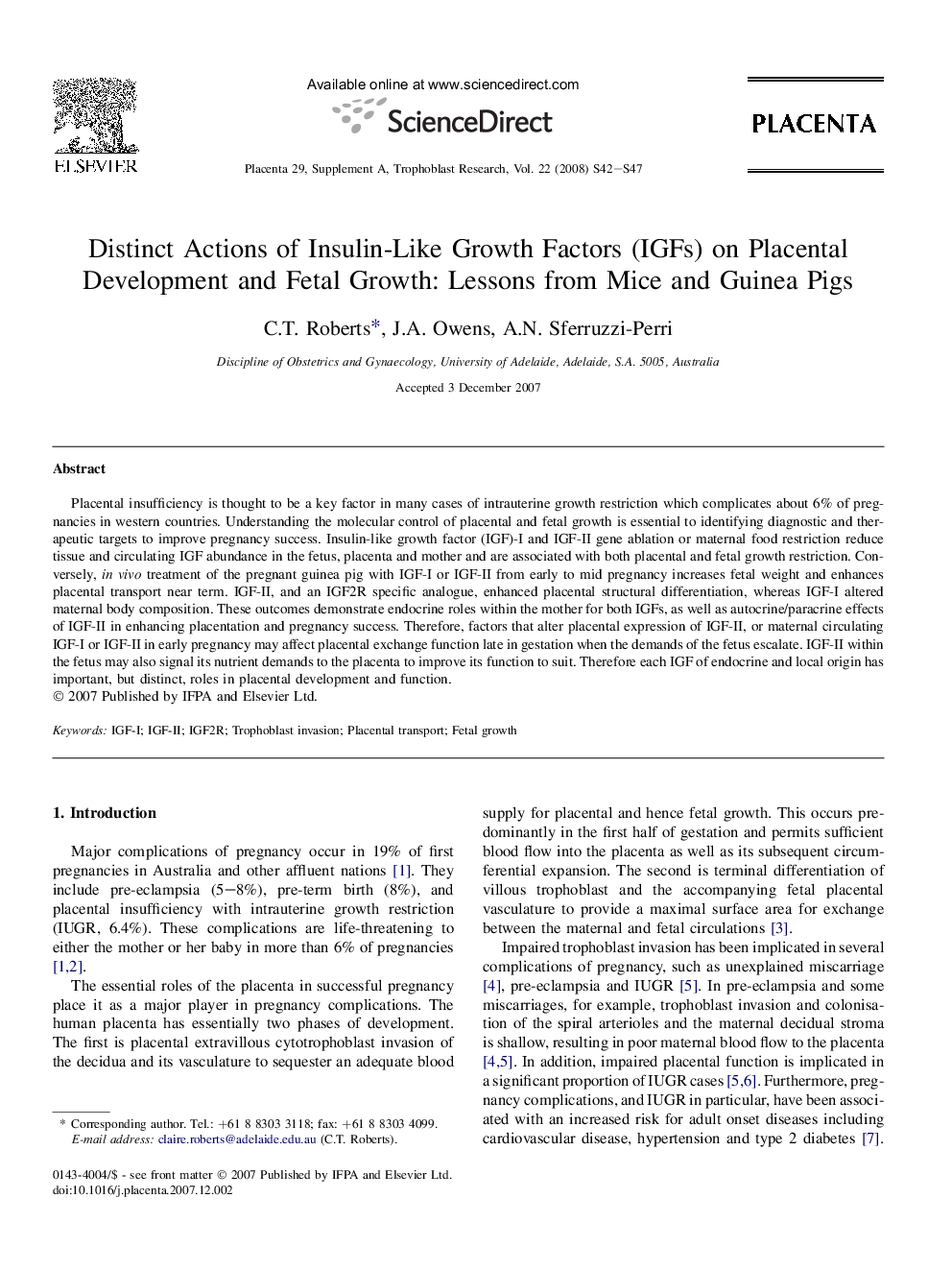| Article ID | Journal | Published Year | Pages | File Type |
|---|---|---|---|---|
| 2790346 | Placenta | 2008 | 6 Pages |
Placental insufficiency is thought to be a key factor in many cases of intrauterine growth restriction which complicates about 6% of pregnancies in western countries. Understanding the molecular control of placental and fetal growth is essential to identifying diagnostic and therapeutic targets to improve pregnancy success. Insulin-like growth factor (IGF)-I and IGF-II gene ablation or maternal food restriction reduce tissue and circulating IGF abundance in the fetus, placenta and mother and are associated with both placental and fetal growth restriction. Conversely, in vivo treatment of the pregnant guinea pig with IGF-I or IGF-II from early to mid pregnancy increases fetal weight and enhances placental transport near term. IGF-II, and an IGF2R specific analogue, enhanced placental structural differentiation, whereas IGF-I altered maternal body composition. These outcomes demonstrate endocrine roles within the mother for both IGFs, as well as autocrine/paracrine effects of IGF-II in enhancing placentation and pregnancy success. Therefore, factors that alter placental expression of IGF-II, or maternal circulating IGF-I or IGF-II in early pregnancy may affect placental exchange function late in gestation when the demands of the fetus escalate. IGF-II within the fetus may also signal its nutrient demands to the placenta to improve its function to suit. Therefore each IGF of endocrine and local origin has important, but distinct, roles in placental development and function.
